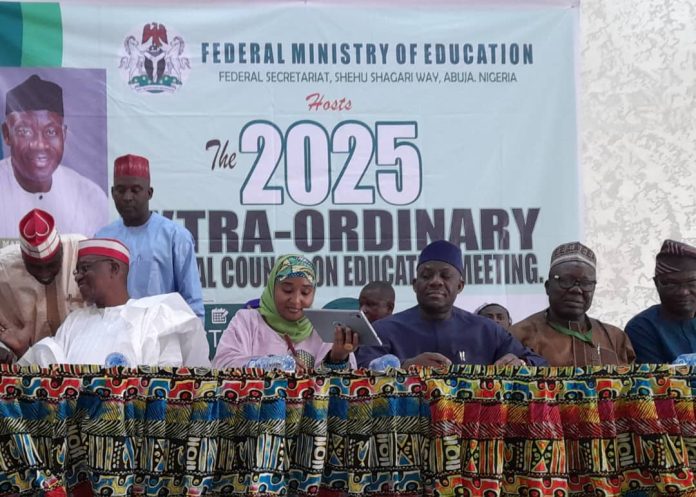By Emmanuella Oghenetega
The Federal Government is seeking approval to kick-start the process of reversal of the provision on the use of mother tongue or the language of the immediate environment as the medium of instruction from Primary 1-6 in the National language policy.
This appeal took place at the 2025 Extraordinary National Council on Education Meeting in Abuja, which had stakeholders present.
Speaking, the Minister of State for Education, Prof. Suwaiba Ahmad, called on the council to approve the review of the national policy on education to restrict the use of mother tongue to Early Childhood Care Development and Education (ECCDE) and primary one.
The National Council on Education (NCE) had previously advocated for the use of the mother tongue of the immediate environment as the medium of instruction in the first three years of primary education.
A policy aimed to preserve Nigerian languages and enhance foundational learning.
However, its implementation was approved on the 30th of November by the Federal Executive Council.
Highlighting some of the challenges hindering the implementation of the policy, the Minister stated, inconsistencies in policy execution, especially in urban areas and some parts of the country, impede implementation. We use English from the start, contradicting the policy.
She also stated, that with over 500 languages in the country, the implementation becomes complex, making it difficult to select a dominant language in multilingual communities.
“Limited availability of instructional materials and textbooks, among other factors, hinders implementation
Also speaking, the Minister of the Federal Ministry of Education, Dr. Tunji Alausa stated, that the initiative aligns with global best practices and Sustainable Development Goal 4 (SDG4), which aims to ensure inclusive and equitable quality education for all.
He emphasized, that the reform will reduce the rate of dropout by eliminating systemic barriers that currently prevent students from completing secondary education.
The meeting had in attendance, commissioners for education from the 36 states and the FCT, heads of agencies, international organisations, and the Deputy Governor of Kano state.


